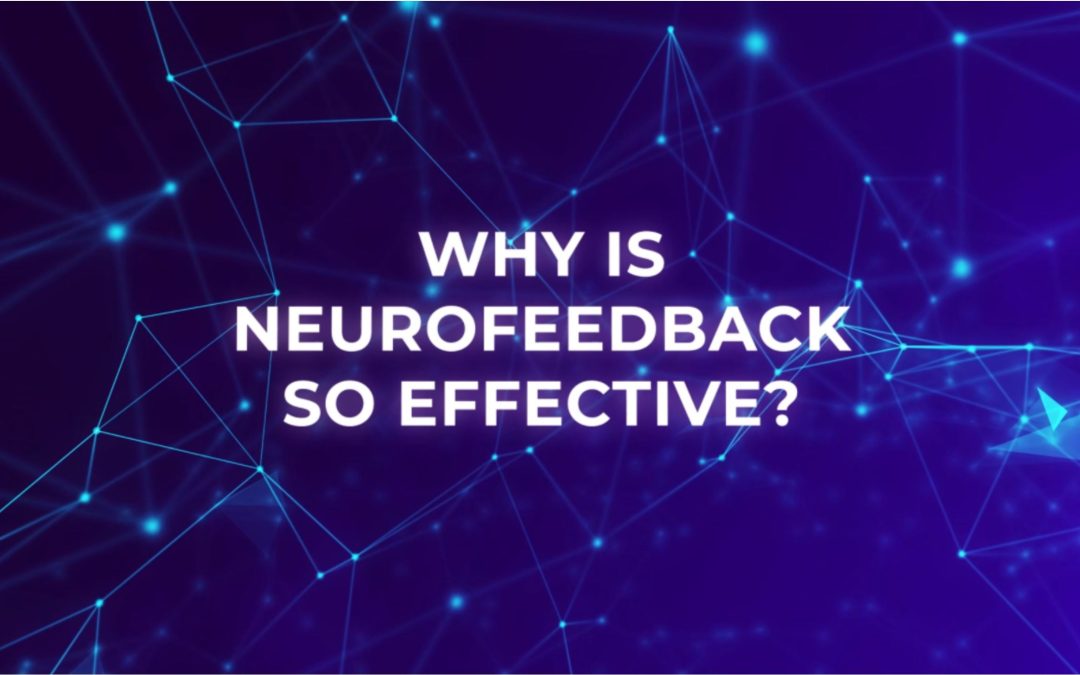In this video, Dr. Randy Cale, a Licensed Psychologist, answers the question, “Why Neurofeedback So Effective?”
Loading Video...
This is a question that often comes from parents or individuals who have done their research and see that neurofeedback is now rated as a level four or five intervention for many mental health disorders, including ADD, anxiety, OCD, and depression.
Level five is as high as it gets with mental health interventions. Many therapies and medications are level two or three, so neurofeedback is garnering attention despite not being a quick fix like them.
Neurofeedback’s effectiveness has been proven, which is interesting because it does not force the brain to do anything. We are not feeding it some drug or electrical impulse; all we do is allow the brain to do its natural thing. Imagine we have a very strong brainwave, like a theta wave, and we want it to come down because it’s associated with more ease, happiness, and enjoyment and fewer ADD, anxiety, and focus problems.
With neurofeedback, we reward that brainwave when it naturally comes down just a tiny bit. This incremental reward creates a very gradual and organic shift in the brain. We are not forcing it; we’re only rewarding it for a state it has already discovered. But this state change is below the individual’s current level of awareness, which is why we have to conduct several reward sessions to get the brain to change.
But when it changes and neuro pathways begin to reorganize, communication patterns begin to reorganize, and neurons begin to expand and grow more connected, the person undergoing neurofeedback training is left with a different brain than they started with.
Your core personality won’t change, but if you are depressed or angry, you could feel better. You’d be left with a more neuroplastic brain, which is a smarter brain that functions better. Your cognitive skills will improve; some kids even gain 15 to 20 IQ points. We can gauge this because we do quantitative EEG, which maps the brain and reveals these changes over time.
If you’d like to speak to me personally, you can call my office fill or fill out a form online to choose a time that fits you. I’d be happy to answer your questions.





